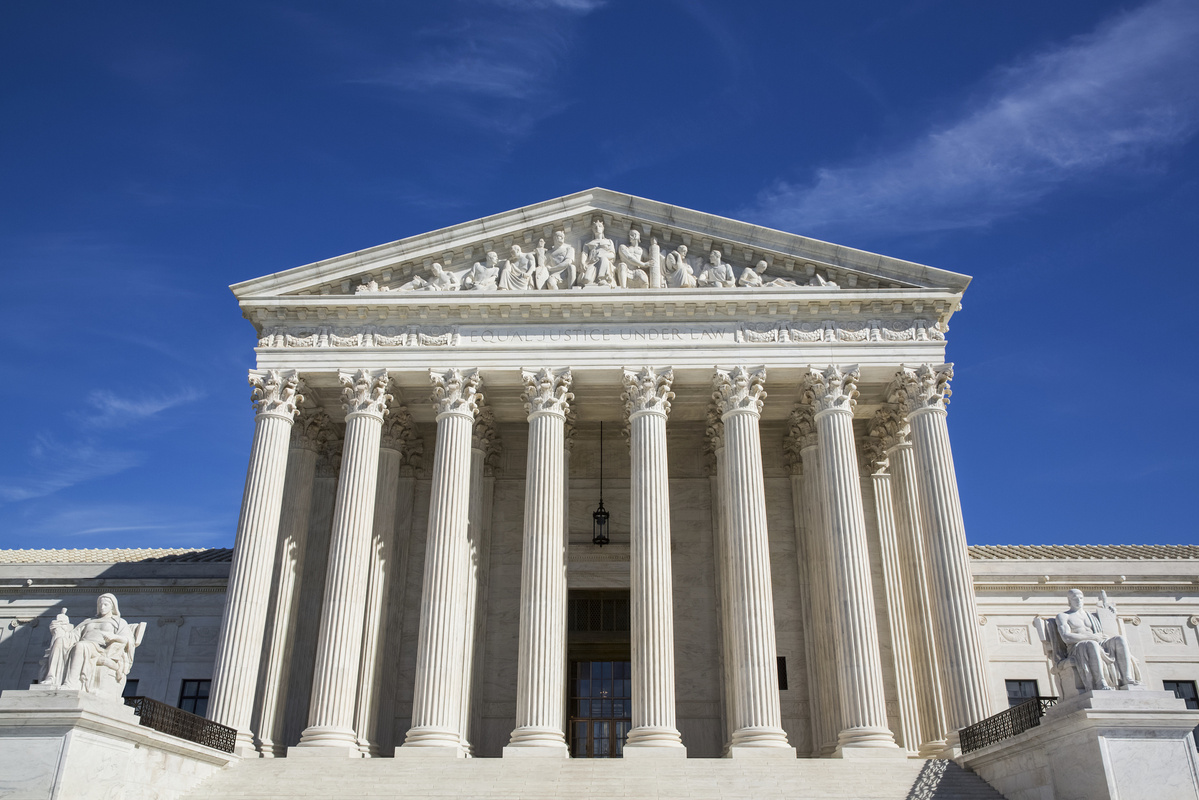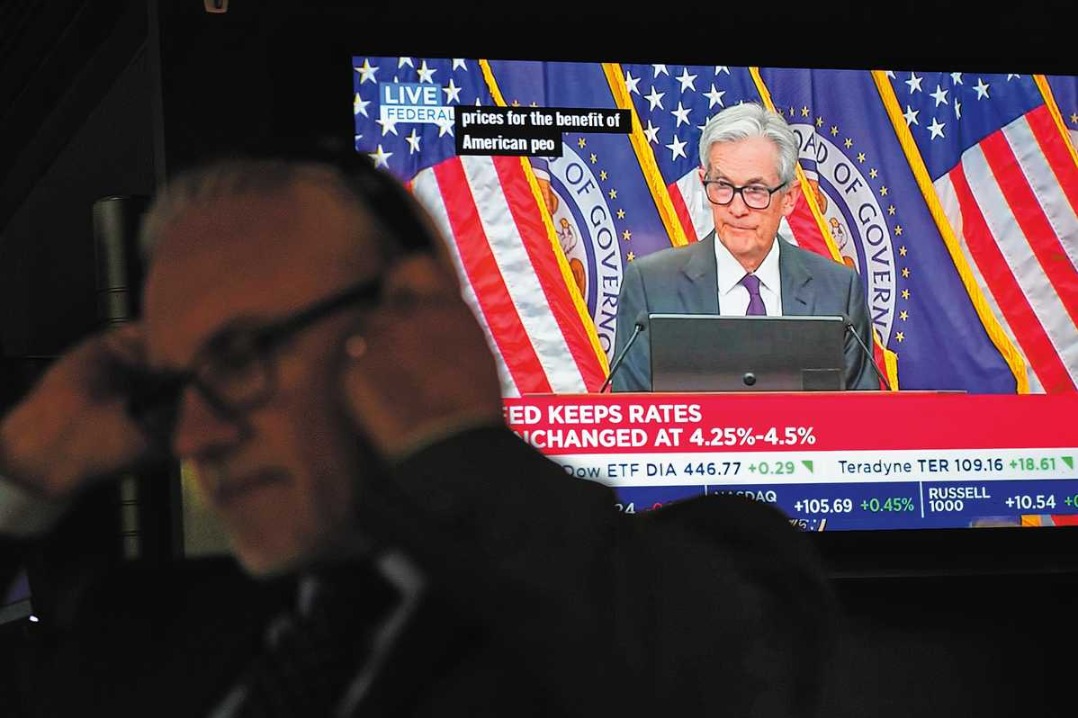Native Americans' court victory raises questions


The US Supreme Court's decision that about half of the eastern part Oklahoma is part of a Native American reservation overturns a criminal conviction and may have far-reaching implications for the region's 1.8 million residents.
The Supreme Court's 5-4 ruling Thursday does not mean the land is now owned by the tribes. Instead, it means the affected area is part of federally owned lands for which the tribes were meant to be beneficiaries, officials said.
State and tribal representatives downplayed fears that the ruling would disrupt commerce and lead to parallel justice systems. In the short term, the officials said, little will change. But some business leaders remained skeptical — especially those active in the production of oil and natural gas.
The court's decision hinged on the question of whether the Creek reservation continued to exist after Oklahoma became a state in 1907. The high court said Congress didn't officially end the sovereignty of the Muscogee (Creek) Nation reservation when Oklahoma became a state, leaving the region under tribal jurisdiction.
Justice Neil Gorsuch, a conservative-oriented justice nominated by US President Donald Trump, joined the court's four liberals in the decision on July 9. Writing for the majority, Gorsuch said:
"If Congress wishes to withdraw its promises, it must say so. Unlawful acts, performed long enough and with sufficient vigor, are never enough to amend the law.
"To hold otherwise would be to elevate the most brazen and longstanding injustices into the law, both rewarding wrong and failing those in the right."
The ruling set aside the 1997 child-rape conviction of Jimcy McGirt, now 71. He was sentenced to life in prison plus 1,000 years for the crime.
McGirt didn't contest his guilt. His attorney argued that the crime was committed on land set aside as a reservation for Native Americans, and therefore the defendant wasn't subject to Oklahoma state law. The attorney argued that only federal authorities could prosecute McGirt. He may now face trial in a US District Court.
Ian Gershengorn, McGirt's attorney, said the ruling forced the US to keep its promise of setting aside land in Oklahoma for the Five Tribes: Creek, Cherokee, Chickasaw, Choctaw and Seminole.
"The (Supreme) Court today correctly recognized that this reservation endures," he said in a statement.
The case stems from the US government's policy in the early 19th century to evict the Five Tribes from their ancestral lands in present-day Alabama and Georgia and move them to the plains of then-territorial Oklahoma. The tribes remember the forced removal of their ancestors and the trek west as the "Trail of Tears".
In the 1830s, the US vowed in a treaty to "secure a country and permanent home to the whole Creek nation of Indians".
Writing for the dissenting justices, Chief Justice John Roberts said any promises of perpetual rights the US made to the Creeks were negated in the 1860s by the Civil War.
"The Five Tribes, whose members collectively held at least 8,000 slaves, signed treaties of alliance with the Confederacy and contributed forces to fight alongside Rebel troops," Roberts wrote.
He said sovereignty of tribal lands was abolished when Oklahoma was admitted to the union as the 46th state.
"By conferring citizenship on tribe members and giving them a vote in the formation of (Oklahoma), Congress incorporated them into a new political community," Roberts said in his dissent.
To rule otherwise "may destabilize the government of vast swaths of Oklahoma", the chief justice said.
Roberts said the court's decision throws into doubt the applicability of state taxes, zoning regulations, environmental law and prior criminal convictions of Native Americans living in the affected region.
Jonodev Chaudhuri, former chief justice of the Creek Nation's Supreme Court, dismissed fears of legal chaos.
"All the sky-is-falling narratives were dubious at best," he told the Tulsa World newspaper. "This would apply only to a small subset of Native Americans committing crimes within the boundaries."
The area affected by the high court's ruling includes Tulsa, the state's second-largest city with a population of about 400,000.
Oklahoma Attorney General Mike Hunter and leaders of the Five Tribes said they have made "substantial progress toward an agreement" to submit to Congress a "framework for shared jurisdiction" to "accomplish more together than any of us could alone".
"The Nations and (Oklahoma) are committed to ensuring that Jimcy McGirt and all other offenders face justice for the crimes for which they are accused. We have a shared commitment to maintain public safety and long-term economic prosperity for the Nations and Oklahoma," the state and tribal officials said in a statement.
"We are committed to implementing a framework of shared jurisdiction that will preserve sovereign interest and rights to self-government while affirming jurisdictional understanding, procedures, laws, and regulations that support public safety, our economy, and private property rights."
But Jordan Harmon, a member of the Creek Nation and an attorney, appeared to be less accommodating.
"Throughout the opinion, Gorsuch recounts the decades of abuse and illegal activity at the hands of the state of Oklahoma encroaching into Indian Territory," he said in a statement. "Time will tell how it affects other Oklahoma tribes in their jurisdictional claims."
The status of the land is key to determining who has regulatory authority — a point not delineated in the Supreme Court's decision.
It's unclear what that might mean for oil and natural-gas extraction, but industry officials feared the Five Tribes will add stringent requirements to existing federal regulations.
Dewey Bartlett, president of Keener Oil & Gas Co and a former mayor of Tulsa, said he doubts whether Congress will devote much time to the matter, meaning that issues of conflict will remain unresolved.
"It's going to be total chaos," he told Energy Now, a trade publication.
But G.T. Bynum, the current mayor of Tulsa, said he remained optimistic because area residents will now work together to build a better future.
"Creek citizens founded Tulsa, and our successes and challenges are shared," he said in a statement.
"We remain committed to the same strong cooperative relationship we have had for decades with the Creek Nation, and to the shared obligation among all jurisdictions — city, tribal, county, state and federal — to serve all Tulsans, city and tribal residents alike."
































